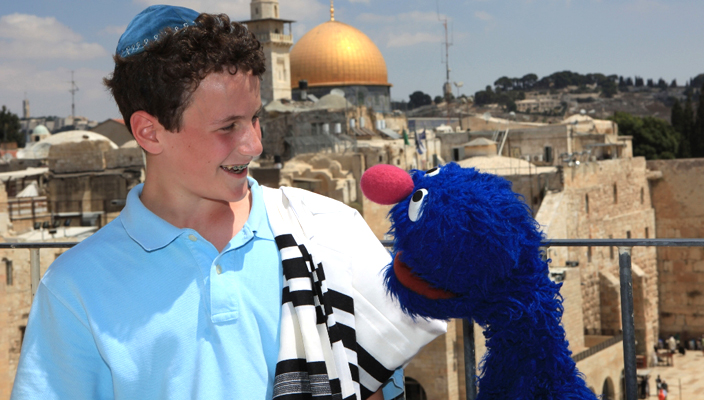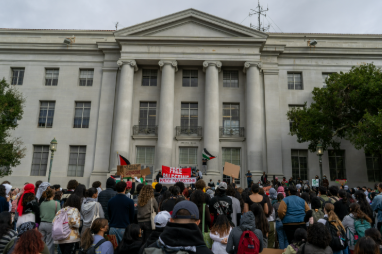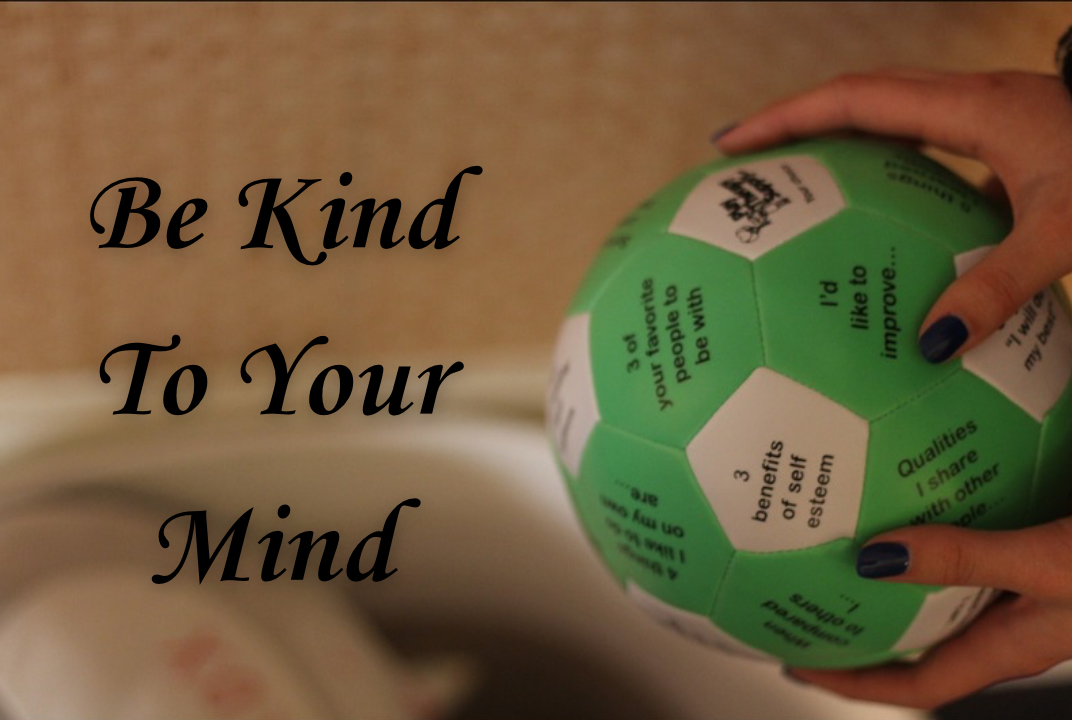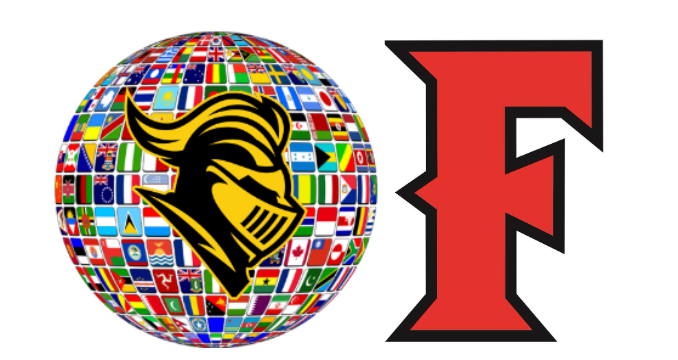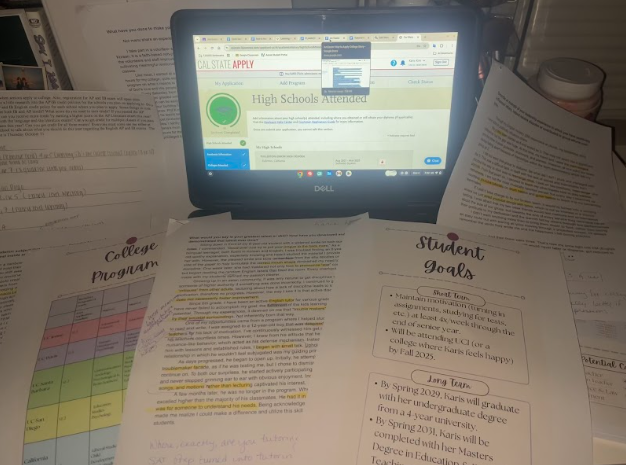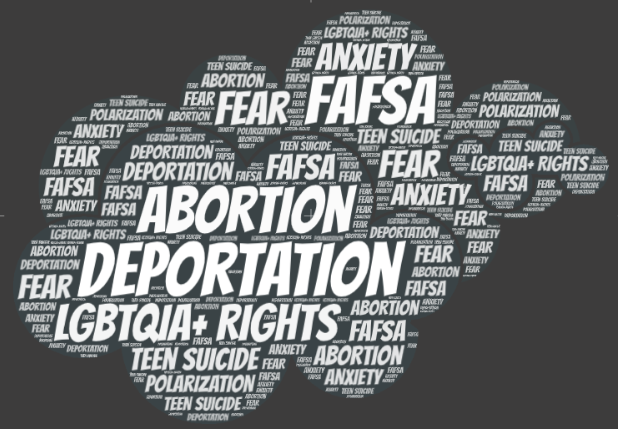“I did not now that dreidel are gambling.”
“I diden’t know that there are diffrent types of jewish.”
“I did not know they did not eat cheeseburgers like what????”
“I like the alphabet of Jews a lot and that Jews can write backwards.”
“I liked the bread, the speach and I need Ian user name for the xbox.”
And that’s what you get when you ask fifth and sixth graders what they learned from a presentation about Jewish people. Hilarious, misspelled survey responses that demonstrate a willingness to learn– despite the oversimplification of Jewish culture. Although, senior Ian Klatzker will not be sharing his Xbox username.
Within the past few weeks, I’ve visited two different elementary schools. With the FUHS Theatre Production class, I performed in Stories from Orangethorpe for all of Orangethorpe Elementary’s K-6 campus. I also traveled to Zeyen Elementary in Garden Grove for a Student to Student presentation with senior Ian Klatzker. Student to Student is a teen activist group, in which Jewish high schoolers travel in small groups to present basic information on the Jewish people to students. The goal of the program is to put a human face to the word “Jewish.”
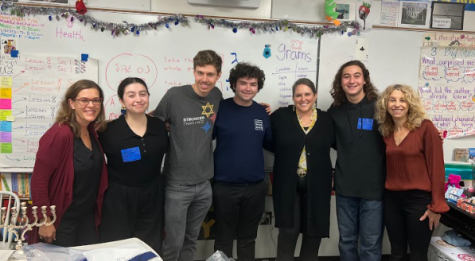
The students at both schools give me hope for the future. Each kid was full of love, joy, curiosity, and a thirst for knowledge. By reaching out to kids like them, we can begin combating prejudice and harmful stereotypes at an early age, ensuring that they grow up to be open and accepting people.
Teaching students at Zeyen demonstrated how education leads to compassion. After learning about the similarities and differences– both within the Jewish community and across cultures– students began making connections. They asked if challah and grape juice is the same as sacramental bread and wine. They asked if queer couples can be married if they’re Jewish. They even asked if Jewish people can play Minecraft in survival mode. That last one is silly, but it actually demonstrates something they learned. In the laws of Kashrut (keeping kosher), you cannot eat pork; they wanted to know if digital pork counts or not. It does not.
Regardless of the lack of nuance in their responses, the kids clearly demonstrated learning; 82% of them reported wanting to learn more. This curiosity, in my opinion, is what can save us from having an ever-increasing rate of antisemitism in America.
Despite the children’s curiosity, however, I’ve noticed a decline in teens and adults wanting to learn more about Judaism. This week is Hanukkah, yet I’ve only seen maybe three menorahs in any sort of commercial or display.
Instead, Jewish people have been featured in the media for unfortunate reasons. Hanukkah’s festival of lights has been dimmed by hate speech clips from public figures. We continue providing a platform for people who spew hatred, misinformation, and conspiracy theories. I no longer see excitement or love for the Jewish community.
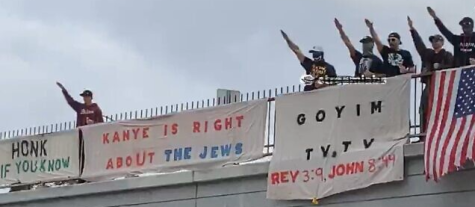
Sure, as a Jewish person I appreciate people mocking and bashing Kanye West, who recently tweeted that he would go “death con 3 On JEWISH PEOPLE.” I appreciate those three token menorahs in the department store holiday display. I appreciate the “Yeezy Come, Yeezy Go” free tattoo removals– that one is actually pretty awesome. But I don’t feel that there has been enough concern for our safety. These beliefs lead to things like the hateful signs over the 405 freeway, the solo-cup swastika in Newport Beach, the synagogue shooting in Colleyville, and more. Six days ago in Central Park, a 63-year-old man was hit in the back of the head– chipping a tooth and breaking his hand– after the assailant made antisemitic remarks. NYPD has confirmed that during the attack, the assailant said “Kanye 2024.” I’m not only so tired of hearing these harmful statements about me, my family, and my ancestors, but I am beginning to fear for my safety.
I expected antisemitism to decrease in high school; the opposite has occurred. A few weeks ago, I saw two boys laughing and making the heil Hitler salute in an FUHS hallway. I walked into my math classroom a few days later and immediately saw a swastika on someone’s chromebook screen. I’ve been asked at least four times, “Hey, Sophia, what do you think of Kanye?” by boys with the same evil smirks I was met with daily throughout middle school. That smirk shows that they have one intent only: to make me upset.
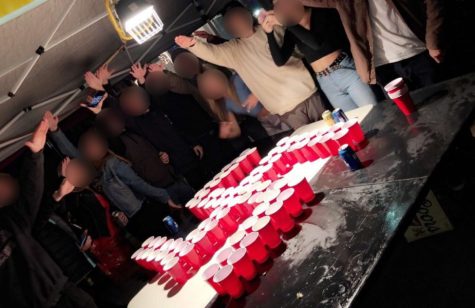
I’m scared. It’s everywhere, and I’m incredibly open about my ethnicity and culture. Almost everyone I know knows that I’m a Jew. Will things go too far? Will one of my peers pose a threat to my safety? I’m just so tired of hearing about what Kanye said now, or what politician denounced antisemitism with a performative Tweet, or seeing Instagram stories of people saying an obligatory “unfollow me if you’re a Nazi.” Despite intentions, those posts come off as a ploy for likes and attention rather than genuine attempts at activism. Instead, advocate for and repost the work of Jewish activists like Student to Student. I’m tired of being scared, and I’m tired of feeling like people gain social credit for trivializing the suffering of Jewish people.
By reaching out to younger people, we can help to ensure that the future generations of America protect the safety and individual rights of all people, but the question is how. How do we educate children without scaring them, without introducing them to harmful ideals before they even understand right and wrong?
Speaking from experience, especially after traveling to Orangethorpe and Zeyen, children love interactivity and personal connections. Liken the Torah to the Bible or the Quran; put things in terms that they understand; use the Dora the Explorer repeat-after-me trick. There are also many informative books and cartoons that humanize the Jewish people. Some favorites of mine include “How Do Dinosaurs Say Happy Chanukah?” by Jane Yolen; “Chicken Soup, Chicken Soup” by Pamela Mayer; “And a Cat from Carmel Market” by Alyssa Satin Capucilli; the short cartoon series Shaboom! by the BimBam Initiative.
Simple things like an occasional episode of Shalom Sesame– a spin-off of Sesame Street with full episodes available on Prime Video, Apple TV, and YouTube– can help show children that Jews are not aliens, but friends and neighbors.
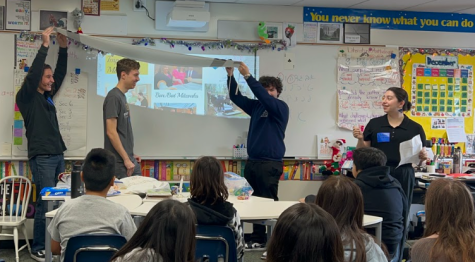
If we collectively work to raise children with empathy and compassion, things might change for my people. I hope that my children don’t have to live in fear the way that I am now.
Although most of the fifth graders I met last week asked about so-called Jewish food and holiday customs, a few responses made me hopeful, like this one: “It helps that people feel bad for Jewish people because of WW2. I hated how short your teaching was.” In other words, the student knows the Holocaust happened and wished she could learn more about the Jewish people. Hopefully, we can help everyone–not just elementary school kids–to advocate for truth and education. After all, my life might depend upon it.

